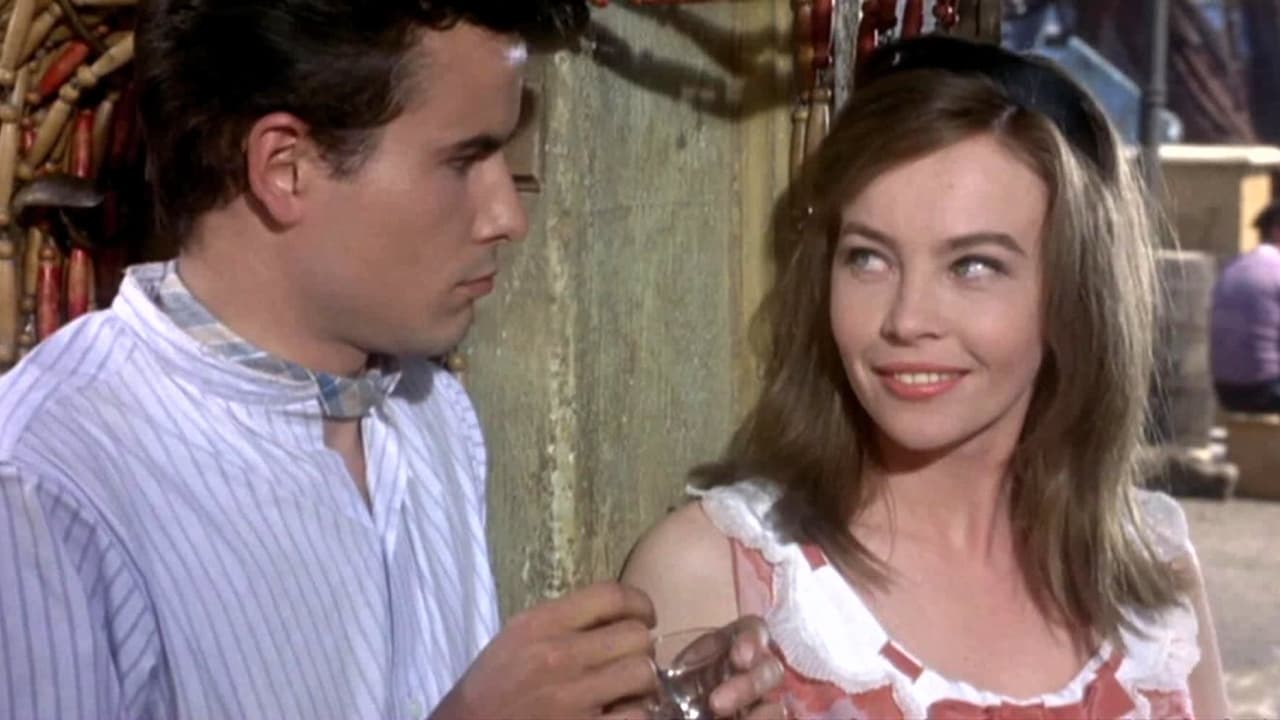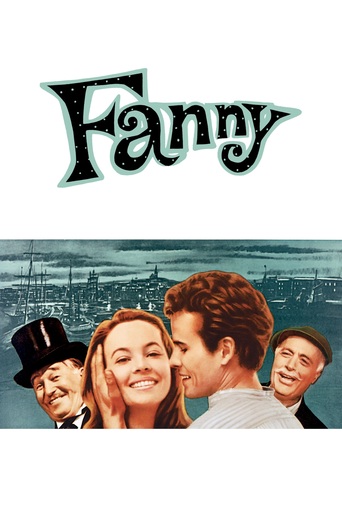

What a waste of my time!!!
... View MoreThe greatest movie ever made..!
... View MoreExcellent, a Must See
... View MoreI gave this film a 9 out of 10, because it was exactly what I expected it to be.
... View MoreLeslie Caron is enchanting and Maurice Chevalier steals the film.The story of an elderly man who saves the day by marrying Fanny, a Parisian young lady who finds herself pregnant as her lover, Horst Buccholz, takes leave and doesn't return for many years.Why was Charles Boyer nominated for best actor here? Chevalier and possibly Buccholz, in a supporting role, deserved Oscar consideration before him.The musical background is wonderful.While the ending may be somewhat convenient, it is more than appropriate.The heavy woman who played Caron's mother is terrific. She is definitely the French equivalent to Italy's Anna Magnani. Her hysteria scenes when discovering that Fanny is pregnant were great.
... View MoreThe story opens amid the noisy fish stalls and bars of Marseille, where we meet 18-year old Fanny (Leslie Caron) who has been in love with Marius (Horst Buchholz) all her life. He loves her, too, but has always dreamed of running away on a sailing ship. The night before he is to leave, he and Fanny profess their love for each other. Will he stay with her or go to sea? What a wonderful movie! I loved it as a teenager and was very surprised to find I love it more now. The story moves slowly and we get to know and care for the colorful characters of the bustling waterfront, especially Marius' father (played by Charles Boyer) and his wealthy friend (played by Maurice Chevalier in an Oscar-worthy performance that will break your heart). Caron is a lovely Fanny and Buchholz's Marius is dreamy and full of angst; their love spans many years and we see them grow up and mature. At the end they are both sadder and wiser and you'll be reaching for the tissues.The strong bonds of love and respect from family and friends make this a heartwarming story. The location photography is beautiful and the romantic soundtrack is unforgettable. Highly recommended.
... View MoreLeslie Caron, (Fanny) was fantastic in this romantic story where she shines like a very sweet and pretty young girl who grew up with a young man and they were both very much in love. Fanny's mother sells all kinds of fish on the water front docks and Fanny helps sell fish also. The young man who Fanny loves is the son of Charles Boyer, (Cesar) and he owns a sort of café and his son loves Fanny very much but he is getting tired of his father's café and wants to go to sea and become a sailor. The story takes an about face when this young man has to make up his mind if he wants to marry Fanny or go to sea, which his father would not be very happy about. This is a great love story and it will hold your interest from the very beginning to the very end.
... View MoreLeslie Caron is quite wonderful playing the love-starved daughter of a fish-market saleswoman on the Paris waterfront who sets her sights on the son of the tavern owner. After a night in her bed, the paths of the young lovers separate, but soon there's a baby on the way and Caron realizes a father will be needed so as not to shame her hard-working mother. Marcel Pagnol's star-crossed trilogy ("Marius", "Fanny", and "César") about life and love in Marseille was first turned into a hit Broadway musical, soon adapted into this non-musical film directed by Joshua Logan. You can easily spot where the songs might have been (the scenes surge forth in emotion, but have no emotional outlet beyond the dialogue). However, Caron just kept getting better and better as an actress, and any trace of self-consciousness as a performer was, by this point, minute. Lots of wily eccentrics dot the supporting cast, with friendly adversaries Maurice Chevalier and Charles Boyer relishing their roles (they're both deliciously mad, like characters out of Lewis Carroll). As the baby's father, Horst Buchholz is handsome and has a few fine scenes, but he's out of his league within this company and doesn't quite connect with Boyer, portraying his father. The film is long and contains possibly too many Mount Rushmore close-ups of La Caron, but indeed it's a handsome piece of work, with Harold Rome's songs now used for the pleasant background score. If viewers can get through the clunky first act, the absorbing plot becomes a surprisingly fine study of missed opportunities, decisions, and human feelings. *** from ****
... View More